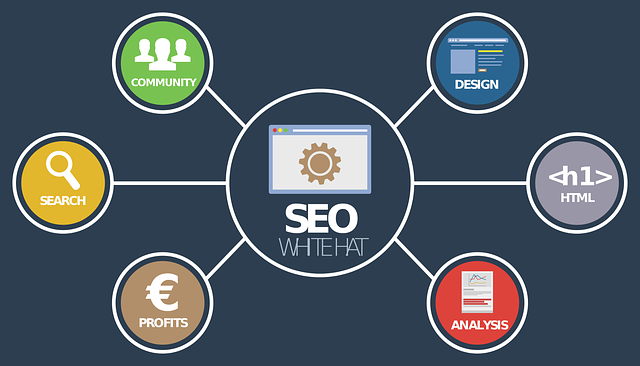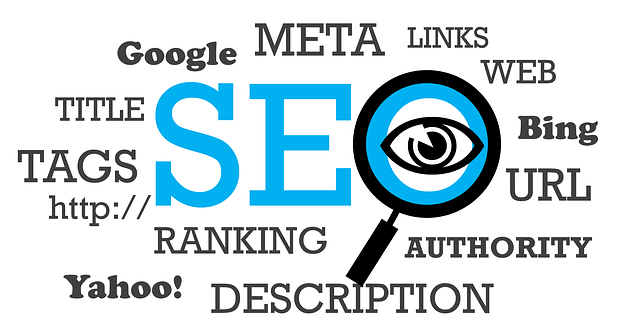The difference between on-page and off-page SEO
Search engine optimization is one of the most important factors in running a successful online company. It can make or break not only your website but your business as well. To become a master at SEO, you need a lot of time, experience, and patience. Furthermore, you must understand all aspects of SEO. To help you in this learning process, let’s talk about the bread and butter of website ranking – the difference between on-page and off-page SEO!
What is on-page SEO?
As the name suggests, on-page SEO includes everything that happens with your website. Before we start explaining different elements of on-page SEO, let’s answer one question; how to do SEO and why??
SEO is necessary if you wish to make your website available to the people looking for the services you provide. When they do a search query for anything, the search engine returns multiple results. Since there are millions of websites out there, how does the engine pick who to show at the top of the list?
While we do not know how the algorithm works, we can safely conclude that it picks better websites. That’s why on-page SEO plays such a crucial role in rankings. You must optimize elements on your website better than your competitors.
Page title tags
Whenever you open a page in the browser, you will see the page name on the tab. That’s the title tag of the web page. The search engine uses this field to return the correct page from a query.
Meta description
The meta description was one of the more relevant on-page SEO factors, but it lost some value over time. It tells the engine what the page is about. Today, if a page is missing a meta description, Google will create one. However, that does not mean you should skip this step. Always add a meta description to your pages.
Keywords and keyphrases
Keywords and phrases are a crucial part of on-page SEO optimization. People use keywords to search for things, and every website should have a list of potential phrases they may type into the search engine. Today we have a vast number of SEO tools that will help you create the best keywords for your website.
SEO friendly URLs
Naming URLs needs to be done in the right way. Creating an SEO-friendly URL is essential for ranking high on Google. Never use a generic URL for a page; instead, give it a meaningful name that can tell the user what the page is about.
Internal links towards other pages on your website
If you are running a blog, it is smart to link to other areas of your website. This is called internal linking, and it is one of the elements of on-page SEO. Remember that internal links are an essential strategy to improve local SEO. A blog is a perfect channel to talk about local events and news while informing people about the different services you offer.
Tags for headings
While we are on the subject of optimizing blogs, it is crucial to mention headings for tags – H1, H2, H3, and so on. The priority of these tags is important, and you should use them to display headings, subheadings, and titles of articles. Furthermore, these tags also exist as a part of the HTML code. The entire website is written with these tags, and you should use them properly to display navigation menus, names of the pages, and so on. They are built to work as a hierarchy structure, with H1 being the tag with the most significance.
What is the best way to properly maintain on-page SEO?
Besides reading about the difference between on-page and off-page SEO and learning more about the optimization process, it is a good idea to turn to WP Full Care or other similar professionals. They can design your website with style, ensure that all SEO factors are satisfied, and regularly maintain the pages.

Understanding the difference between on-page and off-page SEO will allow you to use multiple elements to improve your website ranking.
What is off-page SEO?
If you followed everything until now, you probably have a pretty good guess about what off-page SEO is. This type of optimization includes all elements and factors that are not physically on your website. An important thing to remember is that you don’t have a lot of influence on what happens with the off-page SEO because it also depends on other people. With that in mind, remember to make the on-page SEO spotless!
Link building
The most obvious example of off-page optimization is link building. You form partnerships with other healthy websites and build a base of backlinks that lead back to your homepage. The more mentions you have, the higher your website ranks.
Social media sharing
Another indirect way to increase the traffic and hours people spend on your website is to share posts, comments, and events on social media. Social media activity is an excellent example of how the results are not entirely in your hands. You can post, be active, and talk to people, but you never know what kind of impact it will have.
Guest posts
Hiring freelance writers or publishers from other websites to post for your blog is a good way to strengthen off-page SEO. When they submit quality content that leads to other verified sites, your website becomes a database of facts and information. Both are highly valued on Google’s list of SEO factors.
Brand building
If you wish to build a brand out of your business, everything comes down to publicity. The more people talk about your business, the better. With that in mind, it is crucial to find ways to mention your brand across the internet. While it builds your company, it also contributes to your website ranking.
The difference between on-page and off-page SEO explained
Hopefully, you now have a better understanding of the difference between on-page and off-page SEO. Here is a quick summary:
● on-page optimization includes all elements located on your website;
● off-page SEO is everything that is not a part of your website;
● when it comes to on-page SEO, you have full control over it. Off-page SEO depends a lot on outside factors;
In the end, it is vital to equally work on building both types of SEO, not focus only on one. It is good to know the difference between on-page and off-page SEO, but you should never prioritize one over the other!

